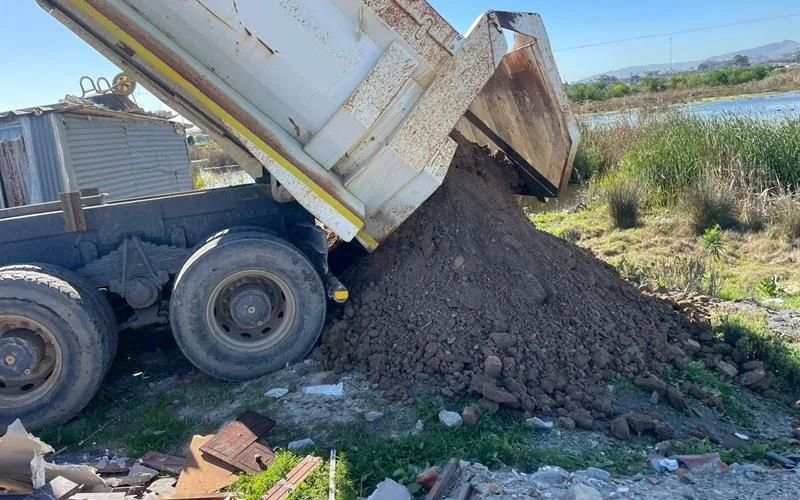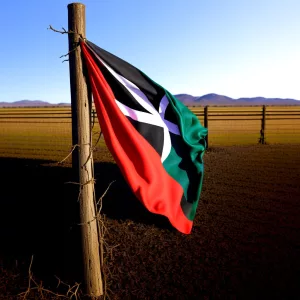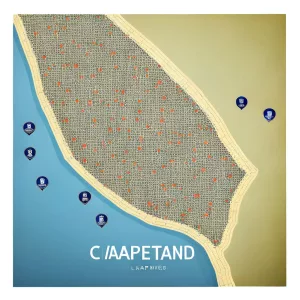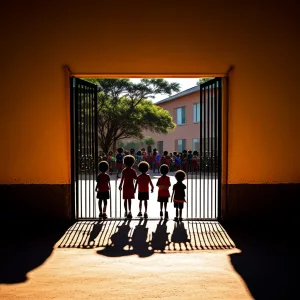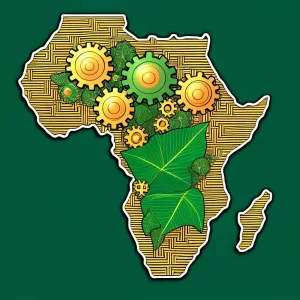Cities fight illegal dumping with strong laws, punishing offenders by impounding vehicles and issuing fines. Police patrol trash hotspots while communities help by reporting illegal dumpers and watching over neighborhoods. New cameras and better waste facilities make it easier to catch and stop those who dump waste carelessly. Together, officials and citizens work to keep the city clean, safe, and full of pride for everyone to enjoy.
City Bowls and Kristen’s Kick Ass Ice Cream are teaming up to bring a fresh and exciting way to enjoy food in Cape Town’s city bowl. They offer healthy, proteinpacked fusion bowls alongside creative, ethical ice cream flavors, all made in modern deliveryonly kitchens. This means busy city folks can easily order tasty, nourishing meals and treats right to their door. Their partnership blends good food with convenience, making eating well simple and fun. Together, they are changing how Capetonians experience urban dining, mixing health and joy in every bite.
Dricus du Plessis, a South African UFC fighter, stirred strong feelings by speaking out about violent attacks on farmers in South Africa, calling it “white genocide.” His words reopened old wounds about race, land, and safety in a country still healing from its troubled past. The debate grew fierce online and beyond, mixing sports, politics, and deep fears about identity. For many, du Plessis is a symbol of courage and struggle, while others see his remarks as dangerous and divisive. This controversy shows how South Africa’s painful history still shapes its present, with stories of violence and resilience entwined in the nation’s soul.
Cape Town is fighting to get more control over its local police to better fight gang violence, drug crimes, and gun offenses. The city wants to handle investigations, gather intelligence, and manage forensic testing to make neighborhoods safer. This push comes from the real struggles many communities face daily, where crime affects people’s lives deeply. Cape Town’s leaders hope that by having more power locally, they can protect their people more effectively and build trust between police and residents. The battle for these powers is also part of a bigger story about who should hold control and how to best keep cities safe.
Operation Dudula, a movement in South Africa, has stirred up strong feelings about who should use public healthcare and schools. They argue that foreign nationals take away services meant for locals, leading to protests and tension in clinics and schools. The government, however, stands firm that everyone in the country deserves access to healthcare and education, reminding people to stay kind and follow the law. Despite challenges, many South Africans continue to work together, believing that respect and unity are key to a fair and caring society.
South Africa is boldly transforming its economy by fixing energy supply, inviting private investment, and pushing green industries and digital access. President Ramaphosa calls for Africa to lead globally, not just follow, using partnerships like the African Continental Free Trade Area to boost trade and jobs. By working closely with countries like Japan, South Africa seeks fair trade and shared growth, focusing on innovation, youth, and sustainable progress. This new vision sees Africa as a confident, creative force shaping its own future.
Shakira’s “Waka Waka (This Time for Africa)” became a powerful song that brought the world together during the 2010 FIFA World Cup, mixing African beats with pop music. It celebrated African culture and gave African artists like Freshlyground a big stage. However, behind the joy, questions arose about whether the song’s profits really helped the promised charities and if the original African creators were fully recognized. The song’s story shows how music can unite people but also reminds us that fairness and honesty matter when sharing success.
The Bhisho Passing Out Parade was a powerful day filled with pride and promise as 849 recruits became police officers, ready to serve and protect South Africa. The ceremony honored the sacrifices of those who came before and reminded everyone that wearing the uniform means a serious duty to the community and human rights. Acting Minister Firoz Cachalia urged the new officers to act with courage, honesty, and respect, even when it’s hard, to build trust and safety in a country facing tough challenges. This event marked not just a career milestone, but a heartfelt commitment to making South Africa safer and fairer for all.
Cape Town offers amazing adventures that won’t cost you more than R500! You can race over golden sand dunes on a quad bike, swing through treetops at Acrobranch, or explore peaceful wetlands at Intaka Island. Families can have a blast at Bugz Playpark, where kids run free and laughter fills the air. Whether you want thrilling action or calm nature, Cape Town has fun, affordable ways to make your day unforgettable.
Madame Zingara is a magical, lively show and dining experience in Cape Town, held inside a beautiful old mirrored tent. It mixes circus, cabaret, and bold food to create a night full of surprises, music, and wonder where guests become part of the fun. More than just a restaurant, it brings people together to share joy and stories under sparkling mirrors. After a pause, Madame Zingara is returning, ready to light up Cape Town nights once again with its wild, playful spirit. It’s a place where fantasy and reality dance together, inviting everyone to dream big and celebrate life.
The NSFAS student housing crisis in South Africa is causing real pain for students, with delayed payments risking evictions and interrupting their studies. The DA is pushing hard for a clear, public legal review to hold NSFAS accountable and fix these problems. Many students live in fear, unsure if they’ll have a safe place to stay, while officials keep promises but offer little real change. This struggle shows how vital honest action is to protect students’ right to both education and shelter.
In Cape Town, breastfeeding is more than a personal choice it’s a community effort. Through events like World Breastfeeding Week and lively “First 1000 Days” meetings called Indabas, mothers, families, and health workers come together to share support and knowledge. Trained counselors also visit homes to help moms overcome challenges, making sure no one feels alone. This city’s warm, caring approach builds strong families and healthy futures, showing how community love can nurture the youngest lives.
Cape Town’s beautiful green spaces hide a dangerous secret: many of its exotic plants like palms, pines, and cypresses catch fire easily and help wildfires spread quickly. Unlike native plants, which resist burning, these imported trees have dry, oily leaves that act like kindling during hot, dry, and windy weather. This risk grows worse with climate change, turning lovely neighborhoods into wildfire hotspots. To protect the city, people are now rethinking gardens, favoring firesafe native plants that keep both nature and residents safe. Cape Town’s story shows how caring for urban nature means balancing beauty with smart safety.
The Ndebele Tribe LEGO Hut is a colorful LEGO set created by Lindsay Swartbooi that brings the bright, bold art of South Africa’s Ndebele people to life. It lets builders explore the tribe’s special designs and stories by making their own patterns on the hut’s walls. This playful set not only honors a rich cultural tradition but also invites people everywhere to learn, imagine, and celebrate a living heritage. Through this creative journey, the Ndebele story shines brightly in the hands of everyone who builds it.
The United States has slapped a 30% tariff on many South African exports, making their goods more expensive and harder to sell in the US market. This sudden change hits important industries like citrus, wine, and steel, forcing businesses to scramble for new customers and government help. Despite the tough times, South African companies are showing grit and creativity, exploring new markets and finding fresh ways to survive. The government is working hard to keep talks open with the US, hoping for a fair solution without trade fights. Even with uncertainty ahead, South Africa’s spirit of resilience shines bright.
In spring, the Cederberg bursts into color with bright wildflowers, creating a magical and lively landscape. Nearby, the Carmién Tea Shop offers a special experience where visitors taste unique Rooibos teas made with local herbs while learning about the tea’s history and craft. This journey blends nature, culture, and wellness, making every sip a celebration of renewal and spring’s fresh energy. It’s a perfect place to slow down, explore, and feel connected to the land.

